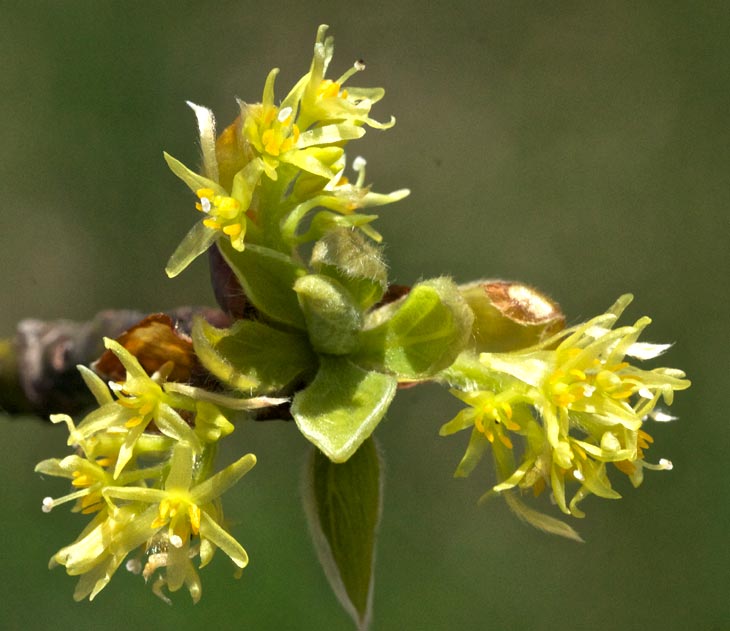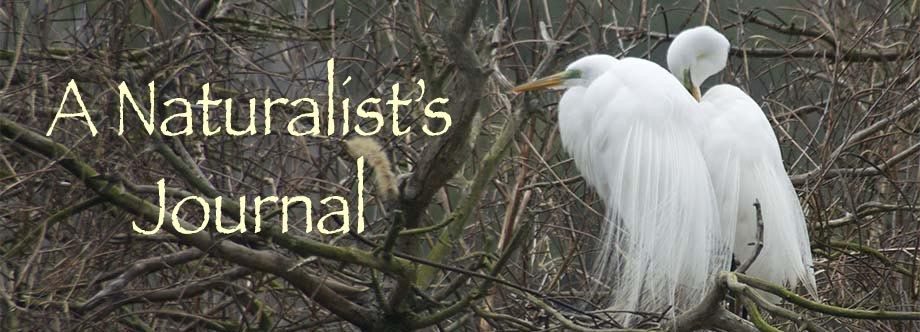 Sassafras trees (Sassafras albidum) are common in our area. A good place to see them is along fence rows. They open their flowers just before the leaves emerge. Each tiny flower has five pale yellow petals, and these give Sassafras trees a distinctly yellow cast. Sassafras has separate male and female trees. The flowers pictured here are from a female tree; those from a male tree have long anthers that protrude from the flowers.
Sassafras trees (Sassafras albidum) are common in our area. A good place to see them is along fence rows. They open their flowers just before the leaves emerge. Each tiny flower has five pale yellow petals, and these give Sassafras trees a distinctly yellow cast. Sassafras has separate male and female trees. The flowers pictured here are from a female tree; those from a male tree have long anthers that protrude from the flowers.
Root beer is a distinctly American drink, and Sassafras roots or the bark of the trunk was originally used as a flavoring agent. The first commercial root beer was introduced by Charles Hires in 1876. He was opposed to alcoholic beverages and wanted to call his new beverage “root tea”, but marketing considerations caused it to be named “root beer”. Sassafras extract is not now used in root beer; the USDA declared one of its components to be carcinogenic in 1960.
The origin of the name Sassafras is not clear. It first appears in Spanish literature in the 1570s. Some think it is a variant of “saxifraga”, which means saxifrage in English. However, Sassafras trees do not at all resemble typical saxifrages, which are nearly all small plants with leaves that grow close to the ground. The word may be a now lost Native American plant name approximated by the Spanish as “Sassafras”.
